Small island states are at the frontier of maritime security and ocean conservation—a reality I experienced firsthand during my recent visit to the Maldives.
Consisting of more than 1,200 tiny islands, the country relies on inland waterways as its main transport routes, while resort tourism drives the economy. Tuna is the staple food and features in almost all local dishes.
In meetings with the Coast Guard and Ministry of Foreign Affairs, I learned about the challenges of managing and safeguarding the maritime economy. While the coast guard is capable and well-equipped, the vast threat landscape makes stronger regional cooperation urgent.
The primary purpose of my visit was to participate in the Theveli Conference, the annual flagship event of the The Maldives National University (MNU). This amazing interdisciplinary gathering brings together researchers interested in the nature, society, and politics of the Maldives and other small island states.
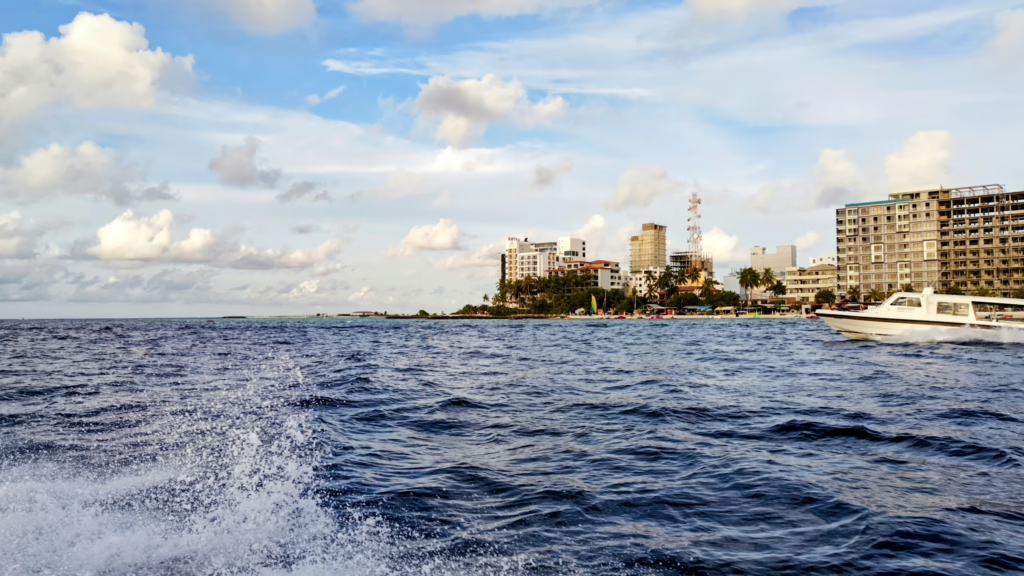
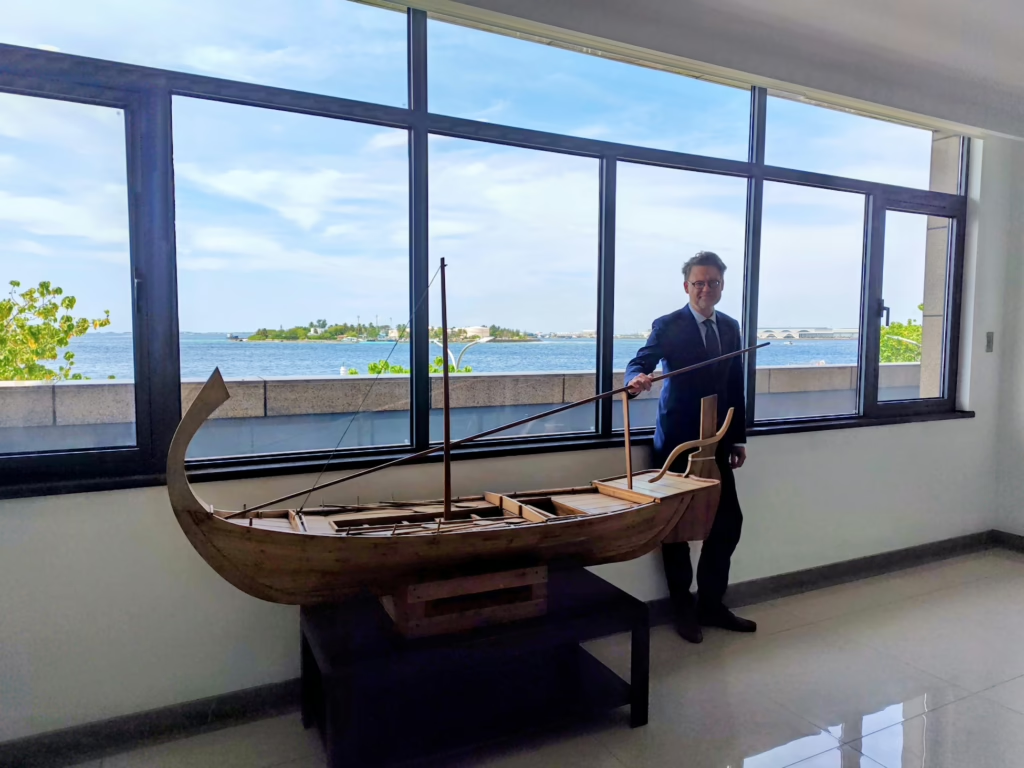
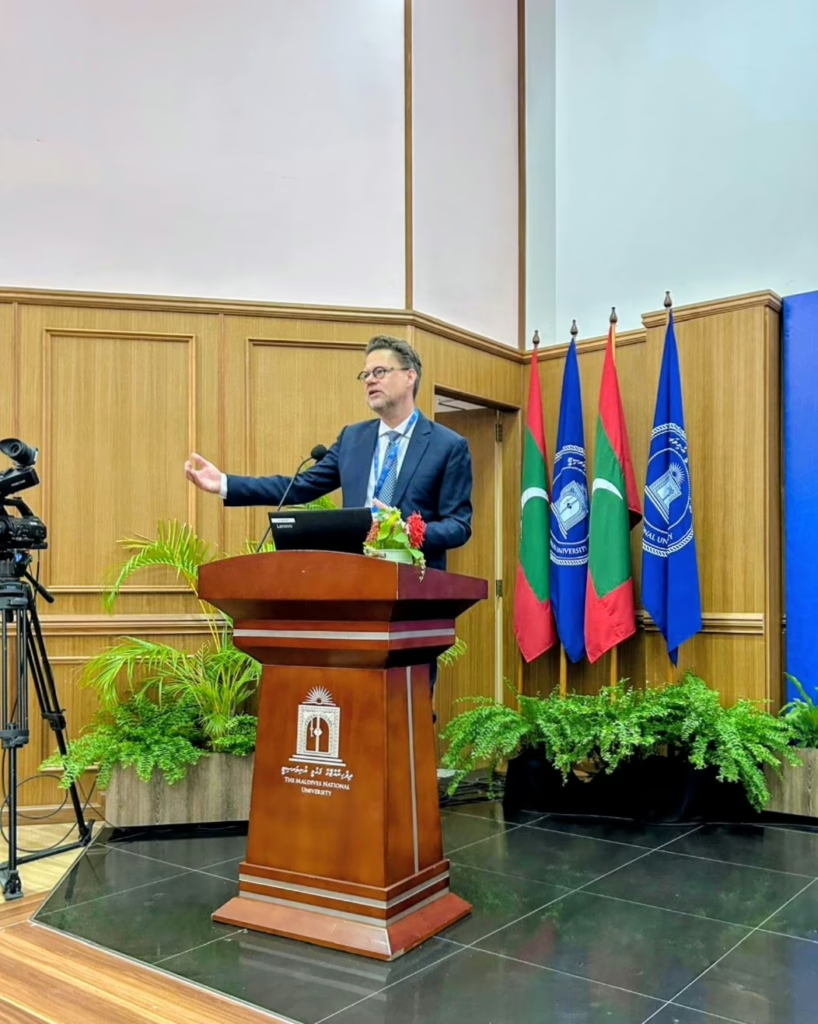
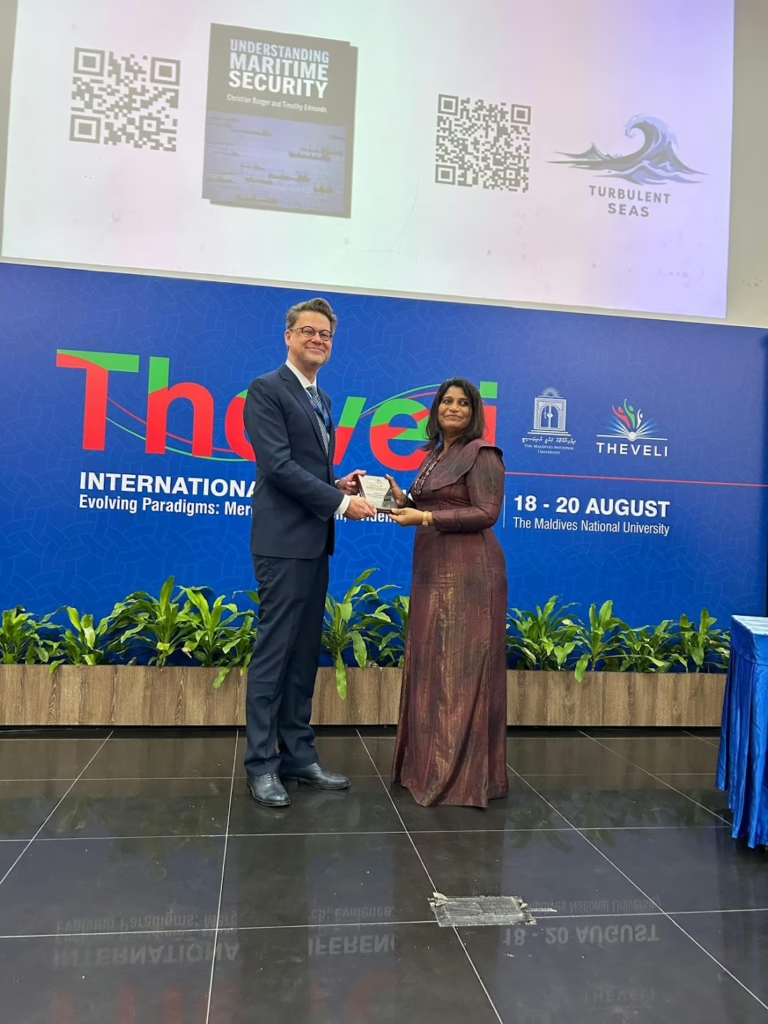
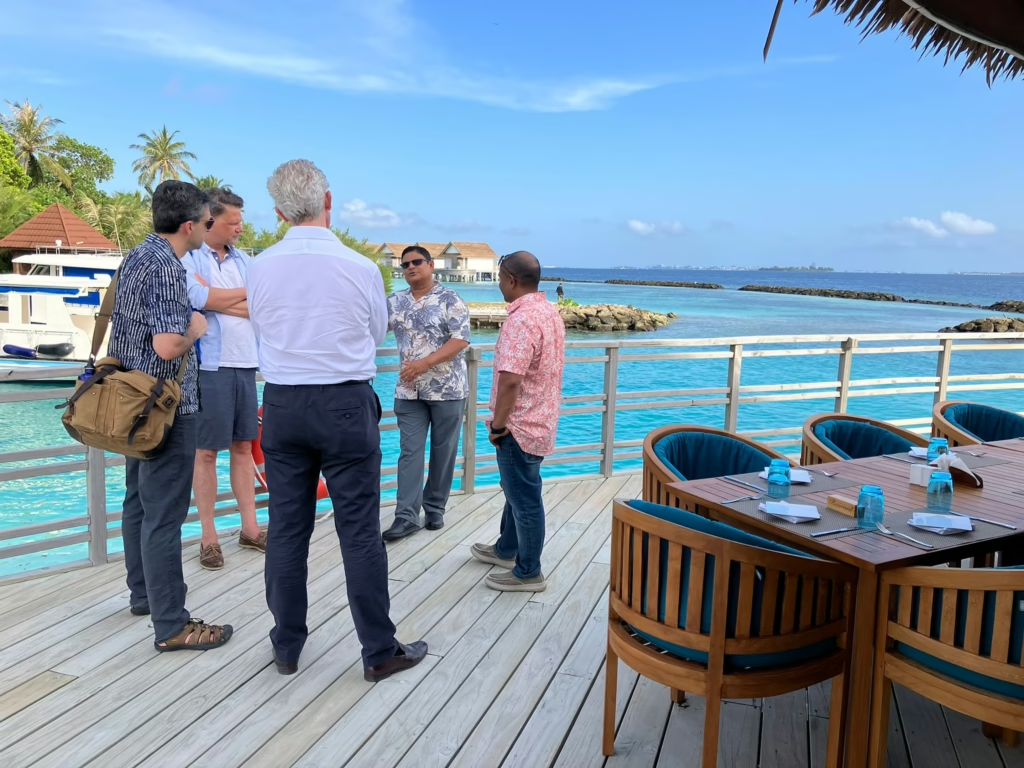
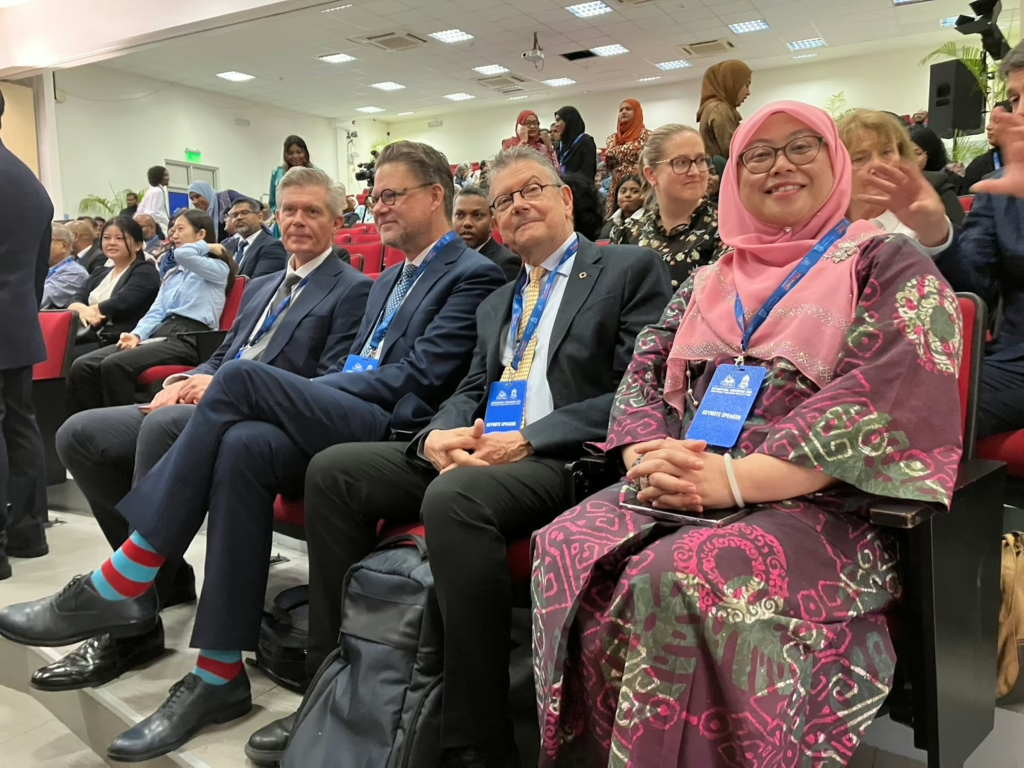
In my keynote address, I discussed how academics can contribute to global ocean politics and how we can improve at translating research into policy, drawing on my experience in maritime security and, most recently, in the UN Security Council. Link to video.
I also taught a short course on linking blue economy to maritime security which led to interesting exchanges on what priorities Maldives should aim for.
Moreover, I participated in a roundtable marking the launch of ‘Small States Maritime Security’ by Athaulla (‘Atho’) Rasheed. The book offers an excellent analysis of maritime challenges facing small states—highly recommended reading.
Delighted to learn that the university is launching two degree programmes on ‘ocean governance’ and on ‘small island state security’ which will be unique educational opportunities in the region.
I look forward to returning to explore more of the islands and their remarkable marine life. Unfortunately, my schedule was too busy, and there wasn’t any time for snorkeling.
